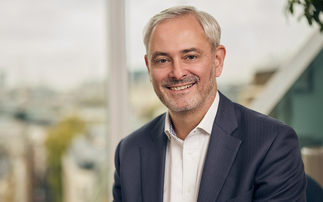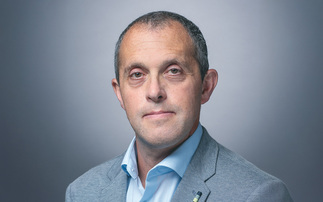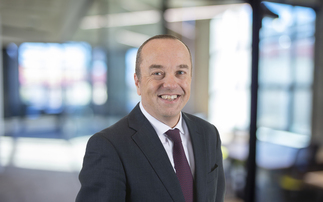Newton Investment Management's Jason Pidcock believes the comradeship that exists between key Asian markets will ensure the region's economies continue to grow rapidly - and become less reliant on exports
Jason Pidcock, Newton Investment Management's investment leader for Far East ex-Japan equities says many countries have now accepted China's position as the pre-eminent low-cost manufacturing base and are concentrating on building up complementary businesses instead.
"China's neighbours are focusing on supplying raw materials and services, rather than trying to compete with it in every sector," he explains. "For example, Hong Kong and Singapore have been turning themselves into legal and financial centres, while Taiwan is increasingly involved in research and development."
Pidcock, who has 12 years of experience investing in Pacific ex-Japan stock markets, says this increased level of intra-regional trade makes him feel "very comfortable" about having exposure to the region.
The amount of money that has been pouring into the region's stock markets in recent years, as well as the continuing strength of its principal currencies, are other key reasons why he is so optimistic about the future.
"The fact these countries are trading more with each other binds them together - both economically and politically - and means they are less reliant on exporting to the US or Europe," he says.
This changing environment across Asia is reflected in the management of both his funds - the long-established £277m Newton Oriental fund and the Newton Asian Income fund, which was only launched last December.
Newton Oriental, which is A-rated by Standard & Poor's and celebrates its 16th birthday this year, is aimed at the investor looking for capital growth from an exposure to Far East equity markets, excluding Japan.
Newton Asian Income fund, on the other hand, aims for increasing annual distributions, as well as long-term capital growth, and offers regional diversification for income investors.
"The market research we carried out showed investors were hungry for income but weren't aware they could find it outside the UK," says Pidcock. "We were confident of having the credentials to launch such a product because we already had a lot of expertise in managing income funds, as well as a strong investment pedigree in Asia."
The prospect of a 4% yield, quarterly dividends and the expectation of decent total returns has made the fund an instant hit with investors, he adds. Around £50m has already been ploughed in and this figure should rise over the coming months.
"People will be investing more for income as they get older and we believe an increasing amount will be going into Asia," says Pidcock. "The fund is already up about 10% since launch and we're very happy with the way that it's going."
The basic investment process followed is the same for both funds.
"We start by identifying themes we like and then pick the best-in-class stocks," explains Pidcock. "We currently like consumer stocks as domestic consumption is increasingly taking over from net exports as the prime contributor to GDP growth. We like to look at valuations and visit company management in the region which includes site visits to mines, factories and retail outlets."
In this respect, Pidcock also has the support of Newton's army of global analysts and sector specialists who are constantly travelling the world to find new, exciting potential additions to the company's portfolios.
Sector allocation is dictated by the themes that are running in the fund. "We tend to avoid big conglomerates and those where there's a lot of government interference," explains Pidcock. "We prefer companies that are very focused on a particular business and currently like domestic consumption stories and Asian-branded stocks."
A prime example of the kind of company in favour is Parkway, which owns three hospitals in Singapore, a controlling stake in the largest hospital chain in Malaysia, operations in Brunei and India, and ambitions to expand into Vietnam and China.
"It is a very good growth story and a play on demographics, Asian populations and intra-regional mobility," explains Pidcock. "Cashflows are good and it's got a high dividend yield of over 4%. It's also based in Singapore and we're overweight in this country because we like its economy and expect it to grow by 7% this year."
Intra-regional tourism, for example, is another theme identified by Pidcock who found the stock most likely to benefit, while on a visit to Macau, China, with one of Newton's global fund managers.
"We thought gaming companies would do well because the Chinese like to gamble when they go to other places," he explains. "We decided Melco, a Hong Kong listed company with operations in Macau, would be the right company through which to play this theme in the Newton Oriental fund and I'm happy to say it was up 30% in January."
In the wake of his financial analysis and the management meetings, Pidcock will be left with a list of companies. Of these, he will choose between 60 and 70 for Newton Oriental fund. Whenever the fund is at the upper limit and another interesting company comes along, one of the existing holdings will have to be sold.
The largest holding is currently High Tech Computer (HTC) of Taiwan, which accounts for 5% of the fund, while other prominent names include BHP Billiton, Standard Chartered, OLAM International and Noble Group.
Just over 40 of the stocks in Newton Oriental fund also appear within the Newton Asian Income fund. "There is a fair amount of overlap, but the income fund can only hold the highest yielding companies we like," explains Pidcock. "That's why the total number of holdings within that fund is lower at around 55."
Newton Asian Income's top 10 holdings are all similar in size - from the 2.17% held in Taiwan Semiconductor Manufacturing, up to Transurban of Australia, which currently accounts for a 2.45% share of the portfolio.
Understandably, this fund has a very strict buy and sell discipline. "Every stock must yield more than the benchmark FTSE All-World Asia Pacific ex-Japan index," he says. "If the share price goes up so much that the yield falls to a 15% discount, then the stock will be sold. Overall, the fund must yield 35% more than the index."
Looking ahead, Pidcock is very upbeat about the region's future prospects. Its economies, he points out, look very robust, oil prices are not expected to go much higher and there don't appear to be any pressing political problems on the horizon.
"We're expecting Asia ex-Japan to continue out-performing the other main regions of the world, even though we're not expecting to see the sort of gains enjoyed in 2005," he says. "Newton Oriental was up about 35% last year, but if it's up by 12 to 15% that would be still be pretty good and more in line with earnings growth."
Investors who haven't previously considered Asia should take a closer look at what the region has to offer, he suggests.
"Investing in other parts of the world can insulate them from a fall in Sterling," he explains. "If they think the region should have fundamentally stronger currencies over time then they should consider Asian funds."
As far as his own ambitions are concerned, Pidcock says he's focused on delivering the bumper returns his clients have come to expect. "The goal is to out-perform our peer group and benchmark index, and provide a decent absolute return for our investors," he says. "We aim to invest in the best companies in an exciting area of the world and believe both funds have very good short-term and longer-term prospects."











